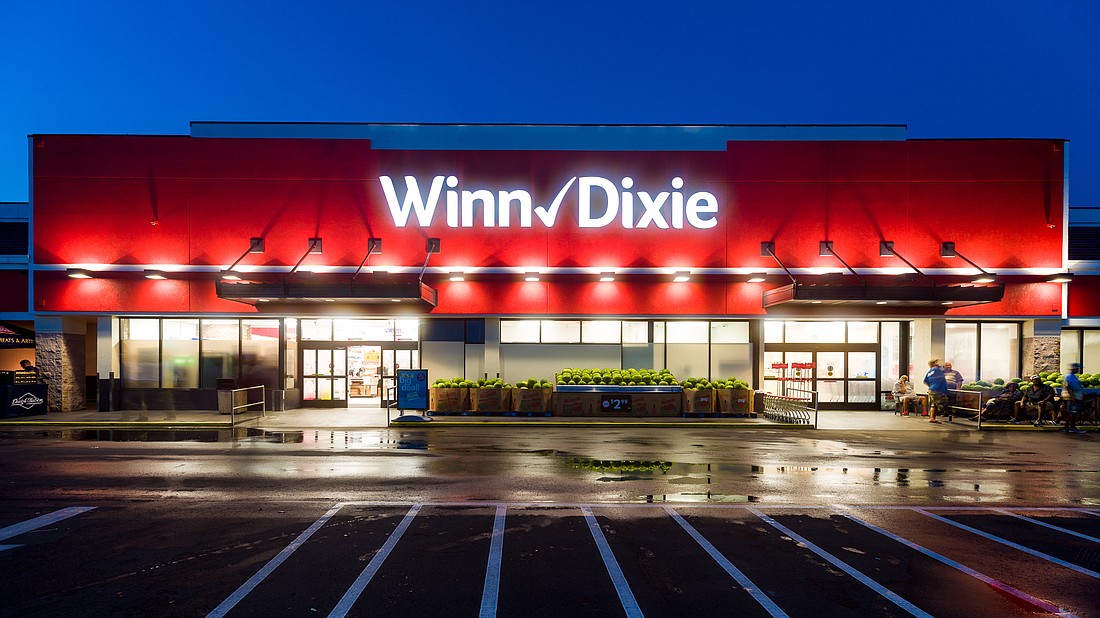
After supermarket sales surged during the COVID-19 pandemic in 2020, it seemed like the ideal time for Southeastern Grocers Inc. to go public.
However, the Jacksonville-based parent of Winn-Dixie and two other supermarket chains pulled its initial public offering off the market last week with Wall Street losing its appetite for grocery stocks.
The Dow Jones U.S. Food Retail & Wholesale Index fell 3.9% in January as investors anticipate grocery sales returning to normal this year.
A day before Southeastern Grocers pulled its IPO, Wells Fargo analyst Edward Kelly downgraded Albertsons Companies Inc. from “overweight” to “equal weight.”
Albertsons went public in June 2020 when sales were peaking for supermarket operators.
“We are bullish on the recovery in dining out as vaccinations grow given significant pent-up demand, which is likely to result in grocers giving back recent sales gains,” Kelly said in his report.
“Most grocers have argued that food at home should retain at least some COVID-related gain, but high vaccine efficacy could result in a reasonably fast return to normal habits,” he said.
Southeastern Grocers didn’t give a reason for pulling its IPO but Reuters news service reported investors were not willing to pay company’s hoped-for price range of $14 to $16 per share.
The Albertsons stock had traded below its IPO price of $16 before a spike in January brought it to the upper teens.
“Investors rightfully view supermarkets as difficult long-term investments given structural issues like fierce competition, a relatively weaker price position, the shift to digital, and its high cost unionized workforce,” Kelly wrote.
“While we are not as negative as most, it’s hard to see this narrative changing as momentum turns more negative this year,” he wrote.
Landstar System Inc. last week reported higher-than-expected fourth-quarter earnings.
However, the Jacksonville-based trucking company expects the spike in e-commerce demand that increased its business in late 2020 will ease in the first quarter.
Landstar reported earnings of $1.70 a share, more than 25 cents higher than the company had forecast. Revenue jumped about 30% to $1.296 billion.
“Although, I expect strong demand to continue through the 2021 first quarter, the impact of the year-end spike in e-commerce on truck rates and volume is expected to subside,” CEO Jim Gattoni said in Landstar’s conference call with analysts.
“Therefore, I expect quarter-over-prior-year-quarter growth in truck rates and volume in the 2021 first quarter, compared to the 2020 first quarter, to be somewhat below the exceptional growth rates of the 2020 fourth quarter,” he said.
Landstar is projecting earnings of $1.55 to $1.65 and revenue of $1.1 billion to $1.15 billion for the first quarter.
Johnson & Johnson last week reported sales at its Jacksonville-based vision care division fell 5.7% in the fourth quarter to $1.076 billion.
However, the medical products giant said the sales drop resulted from inventory corrections and it expects growth in its contact lens business.
“We believe that our position overall in the contact lens (business) has continued to strengthen, and we did see improvement as we went quarter to quarter and ended the year, and we think we’ll be well-positioned as we enter 2021,” CEO Alex Gorsky said in Johnson & Johnson’s conference call.
After the company reopened bank branches in the third quarter, Ameris Bancorp closed the branch lobbies again in late 2020 because of a rise in COVID-19 cases.
“We really don’t anticipate having them open until March or we start seeing some positive swings in the cases,” CEO H. Palmer Proctor said in the company’s conference call last week.
Ameris is serving customers online, through its drive-through lanes and by appointment in its offices.
“That being said, we are extremely pleased to be in the Southeast because I can tell you, many businesses here are back open. Restaurants, retail shopping and certainly traffic continues to pick up every day, so that’s encouraging to see,” Proctor said.
“But we all still need to remain diligent and careful.”
Ameris, which moved its executive offices from Jacksonville to Atlanta in 2019, has 164 branches in Florida, Georgia, South Carolina and Alabama.
Ameris reported fourth-quarter adjusted earnings of $1.47 a share, up from 96 cents in the fourth quarter of 2019.
International Baler Corp.’s sales for the fiscal year ended Oct. 31 fell 5.7% to $8.99 million, according to its annual report filed last week.
The Jacksonville-based maker of baling equipment used for recycling and waste disposal had a net loss of $408,415, or 8 cents a share, for the year.
The company said the decline in sales resulted mainly from economic conditions.